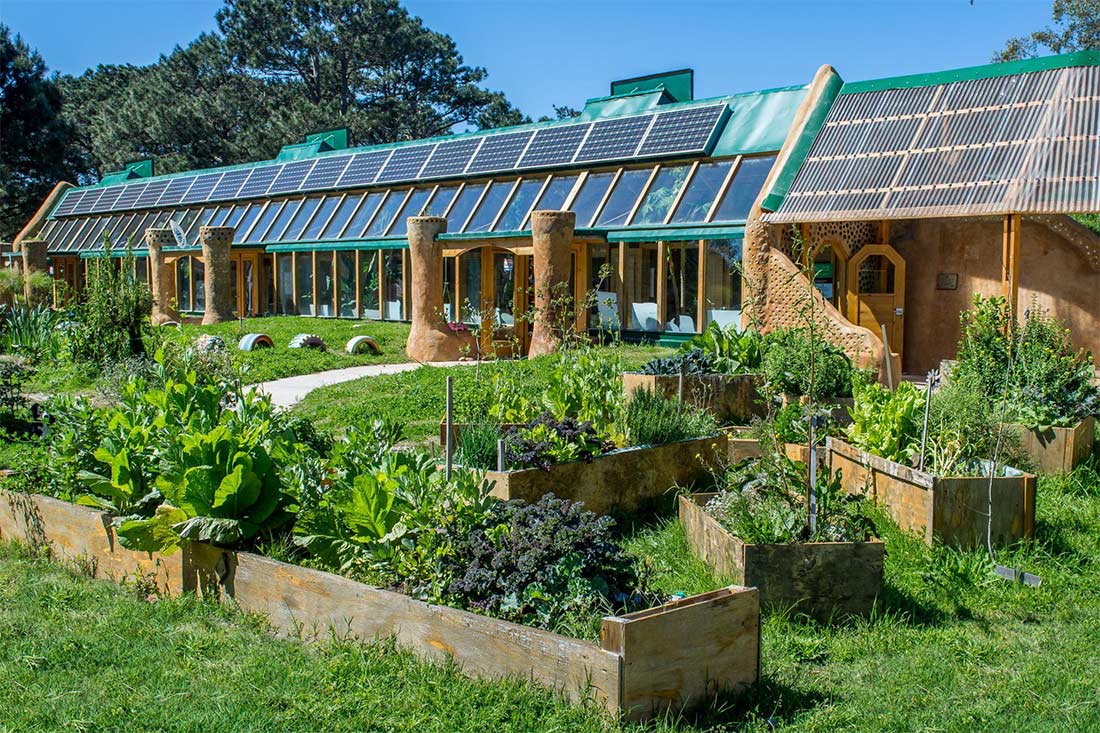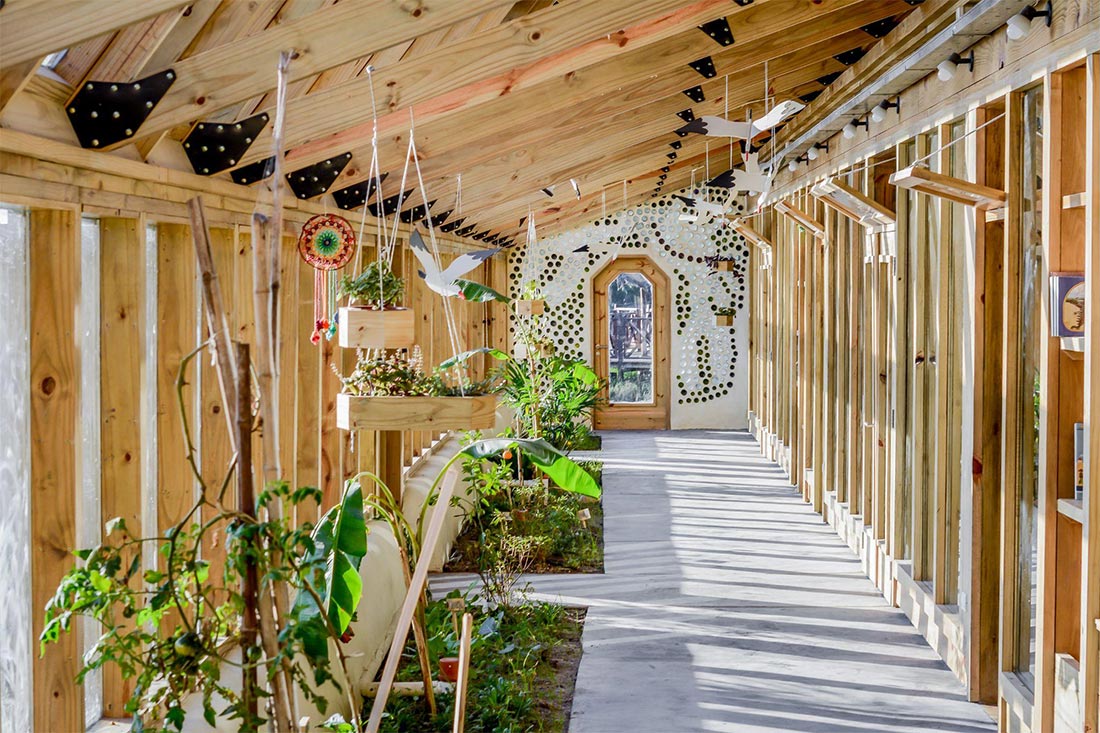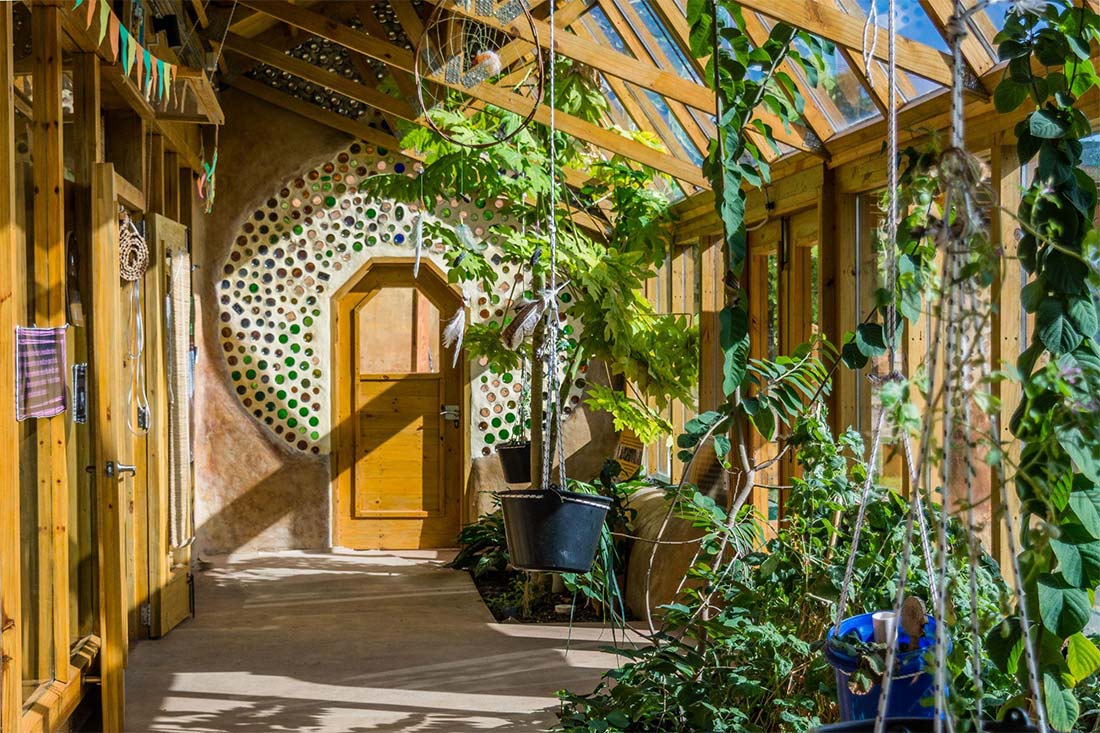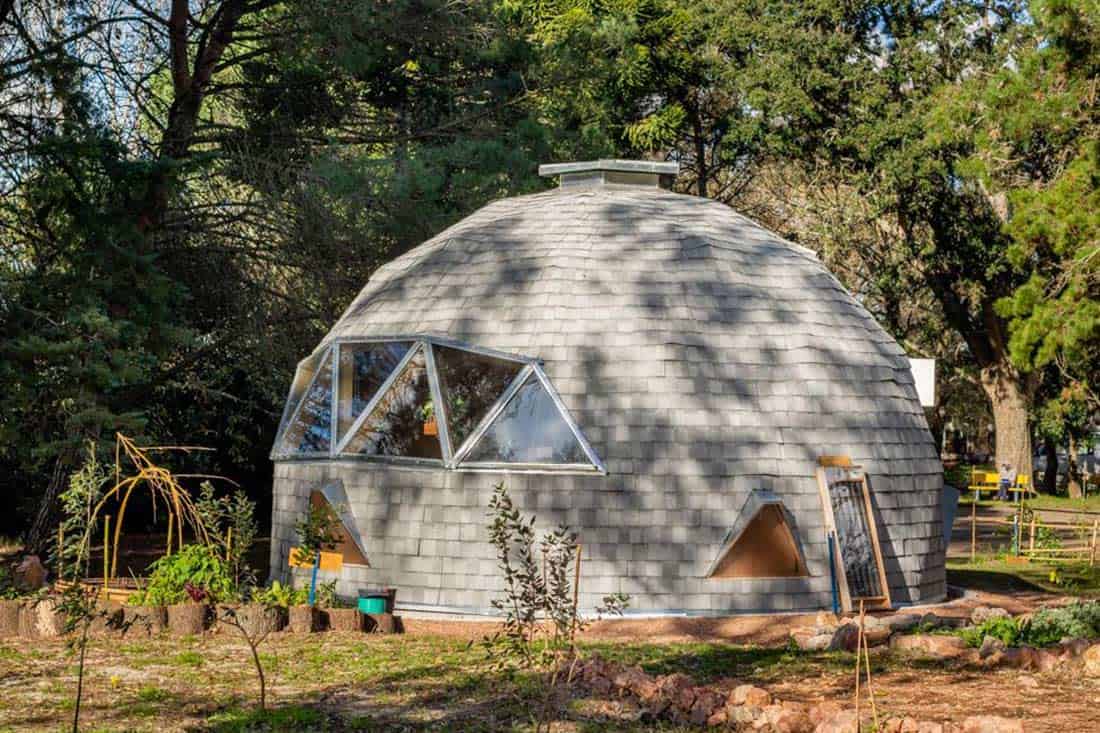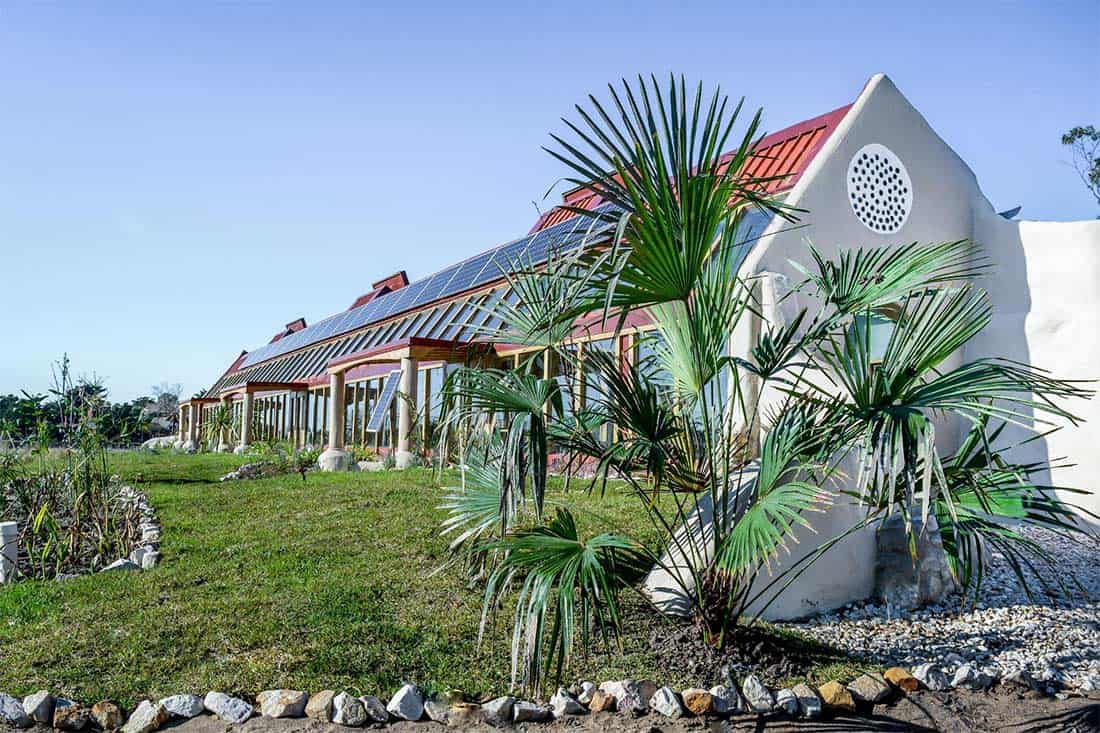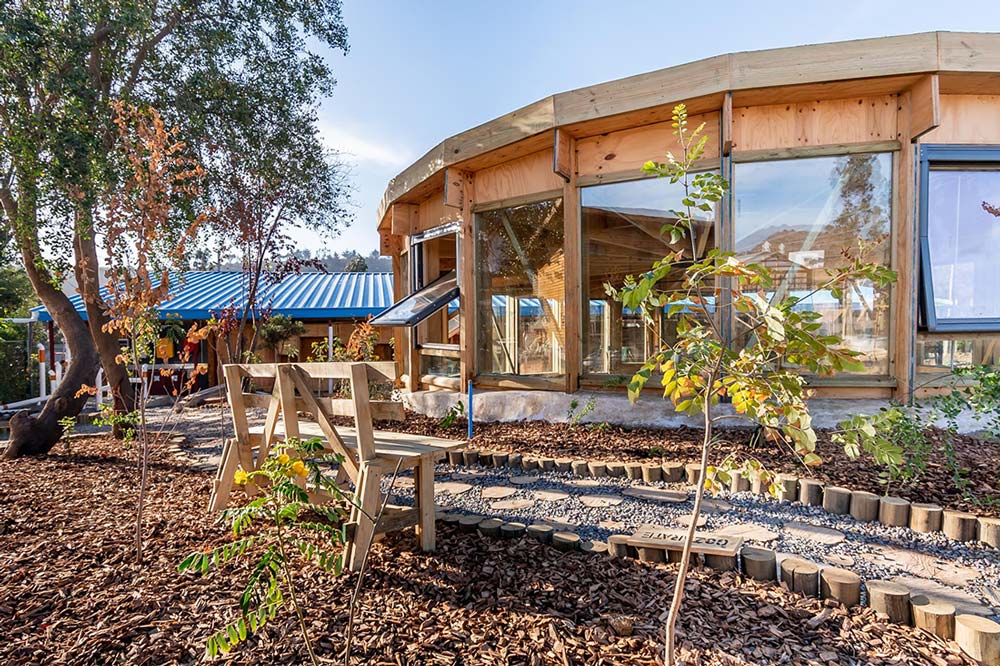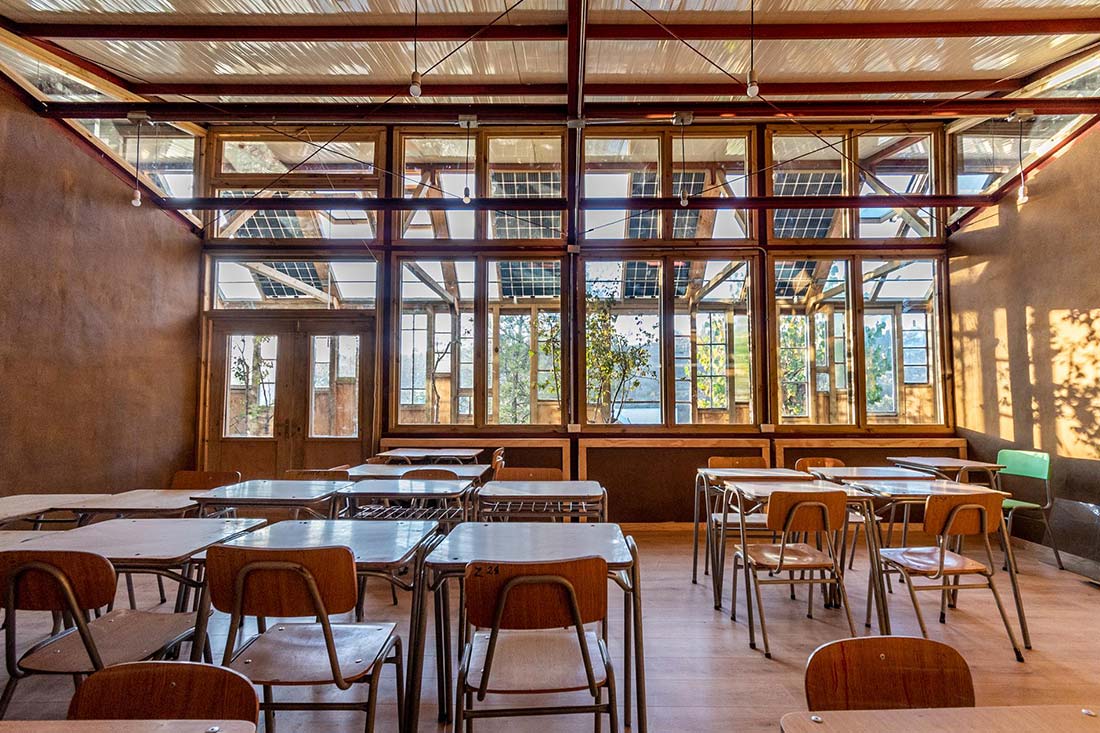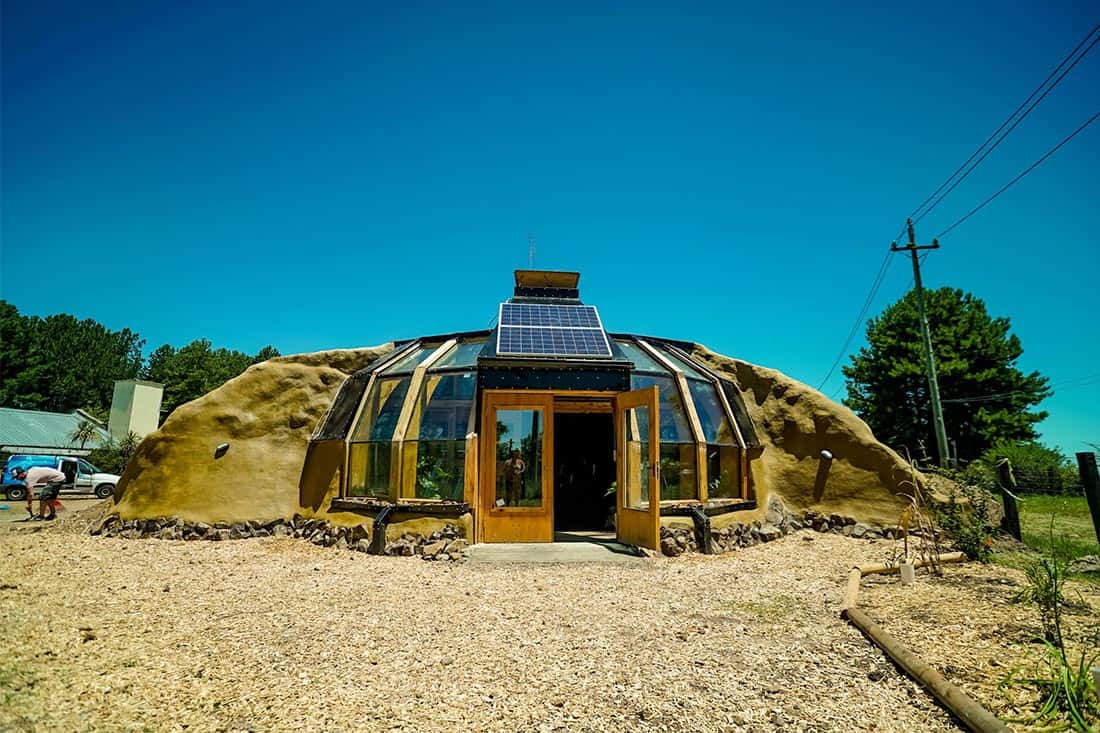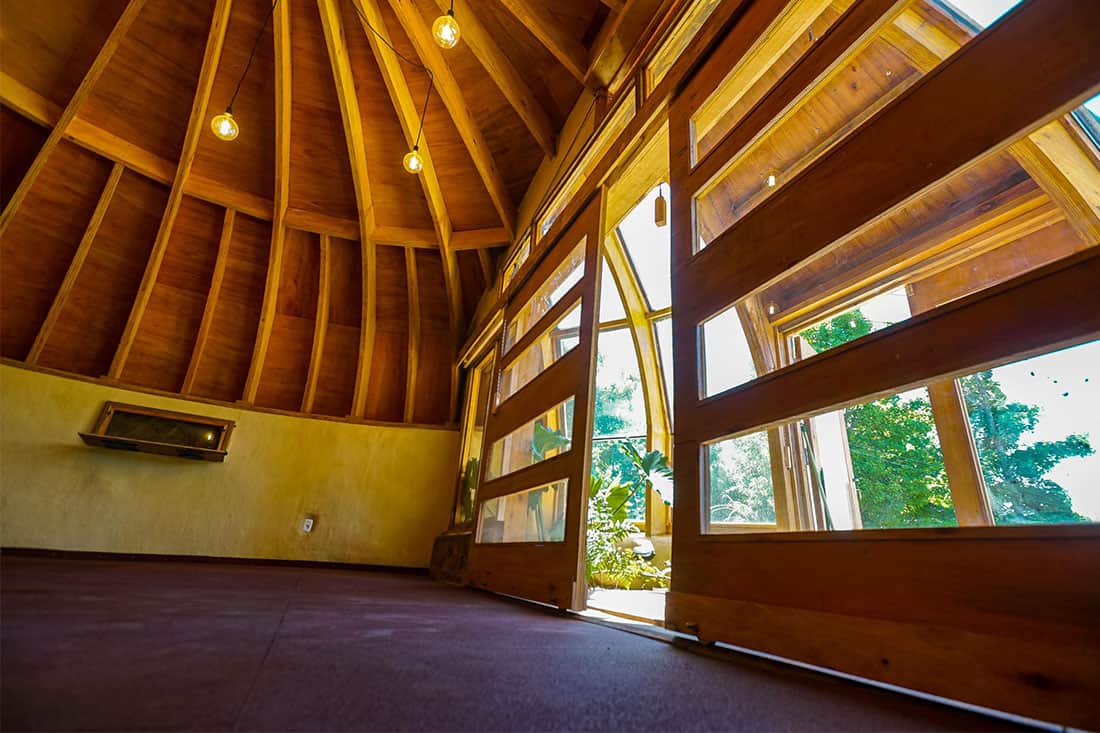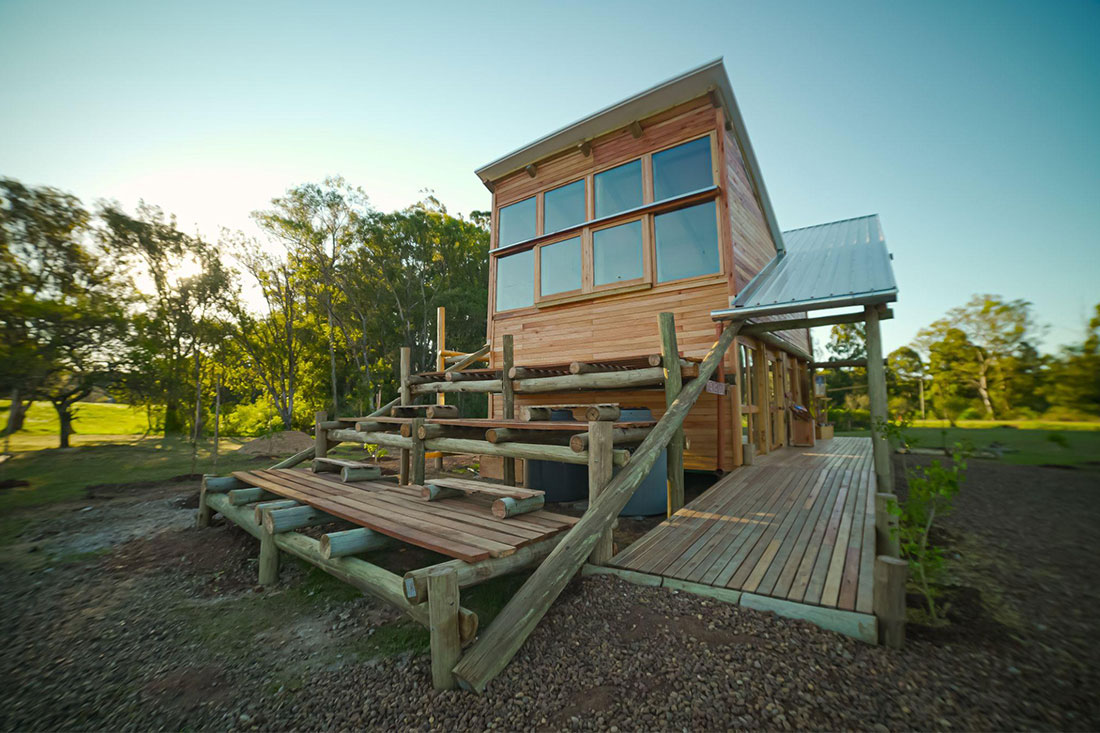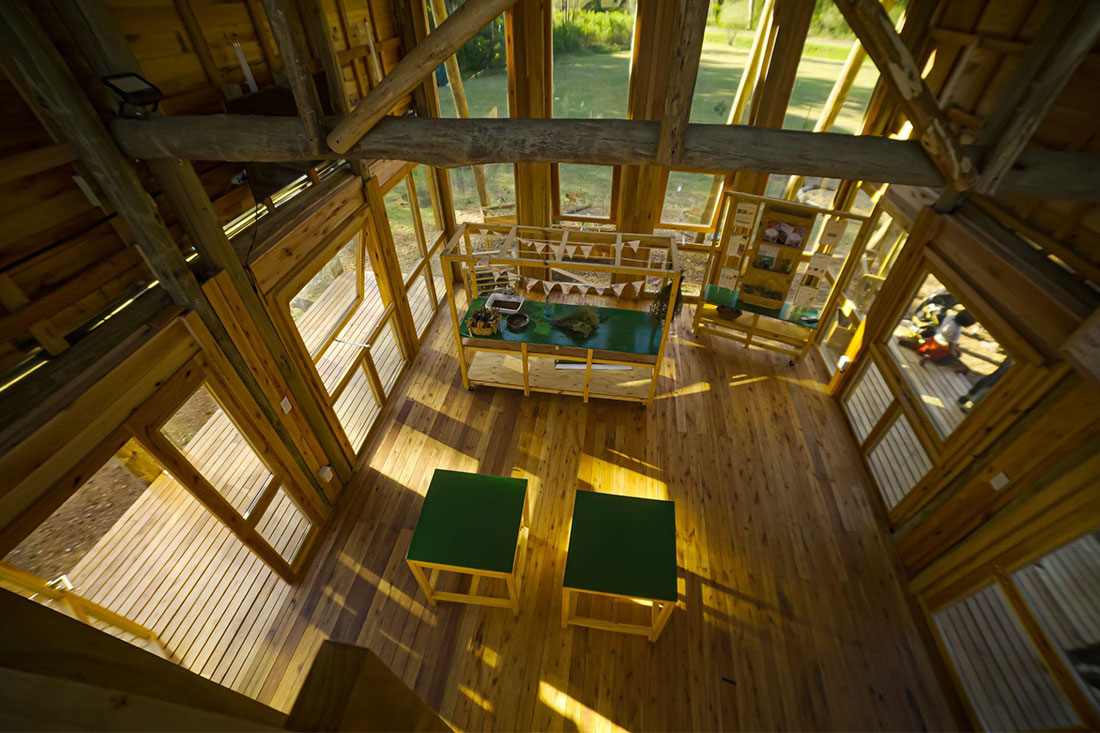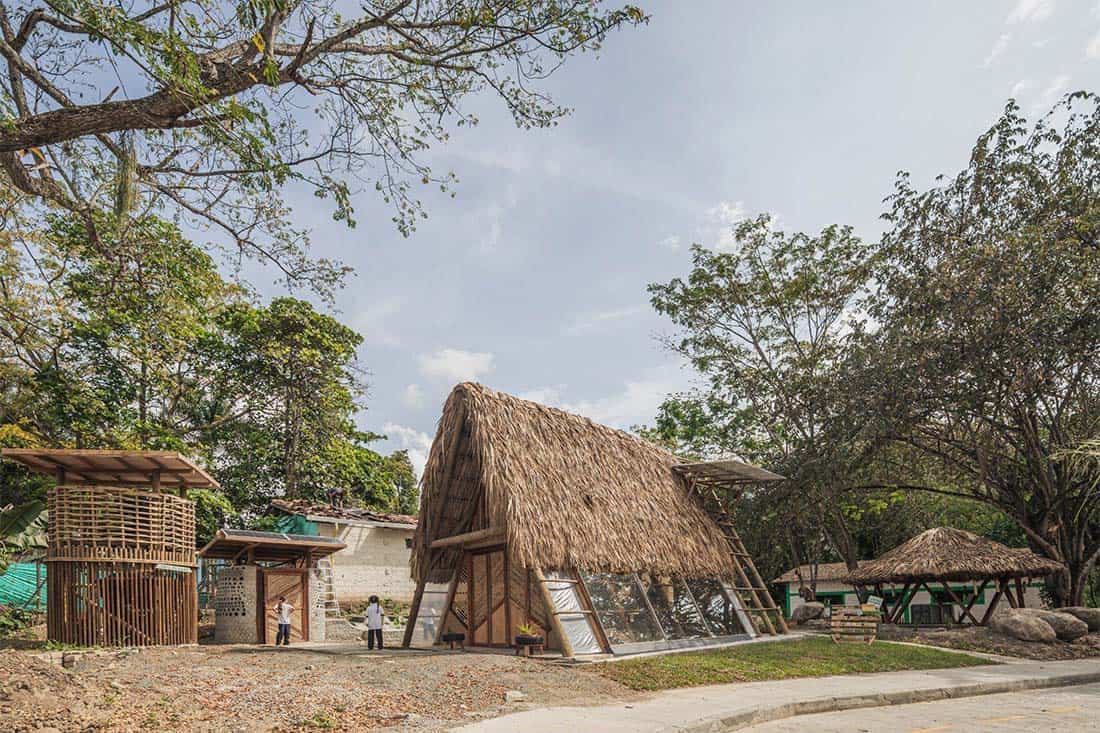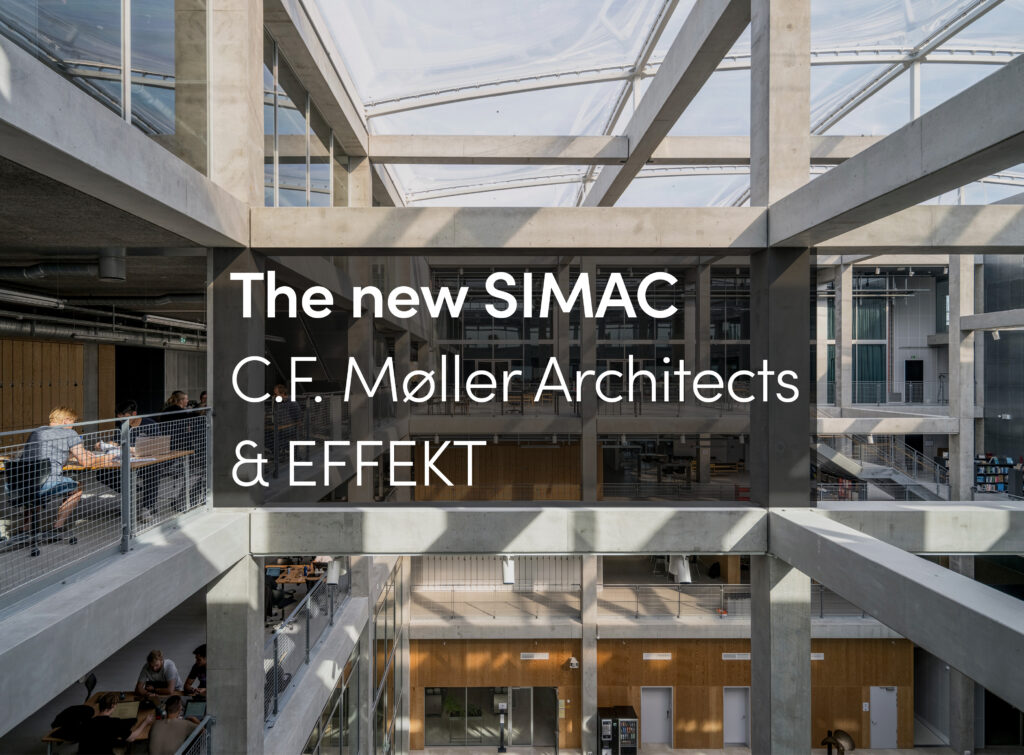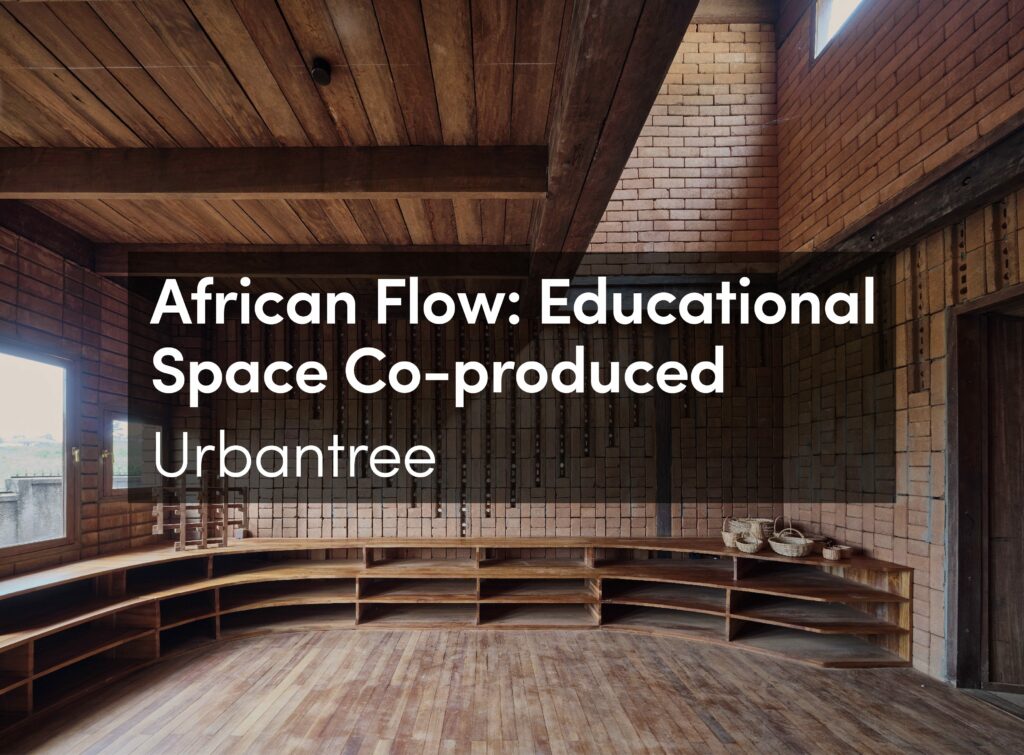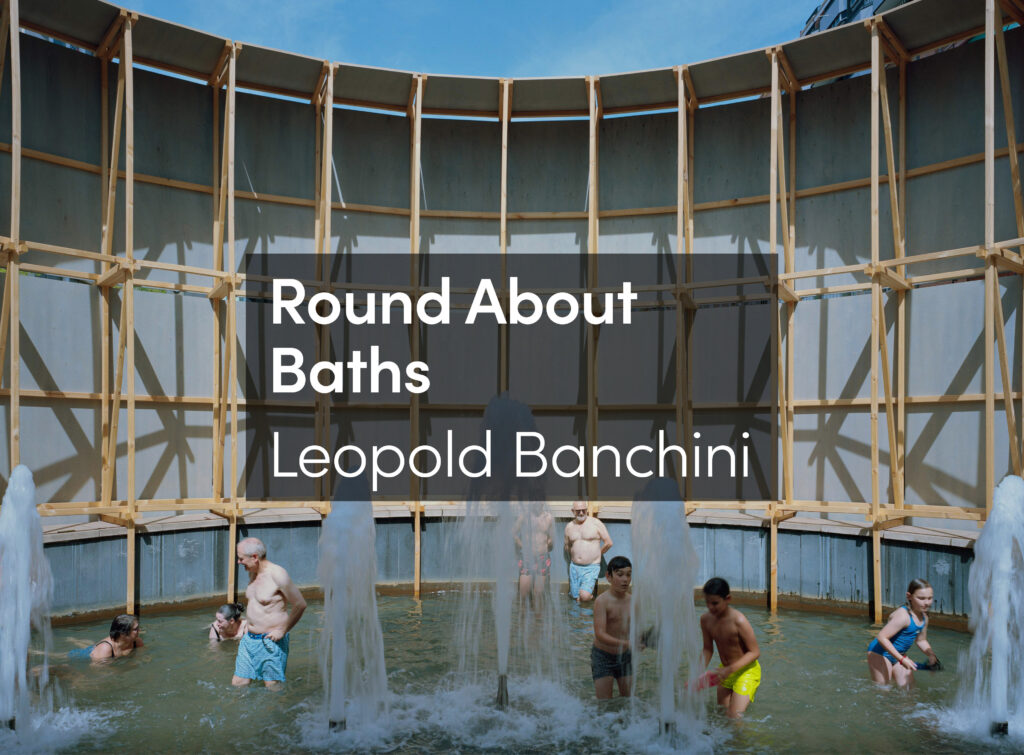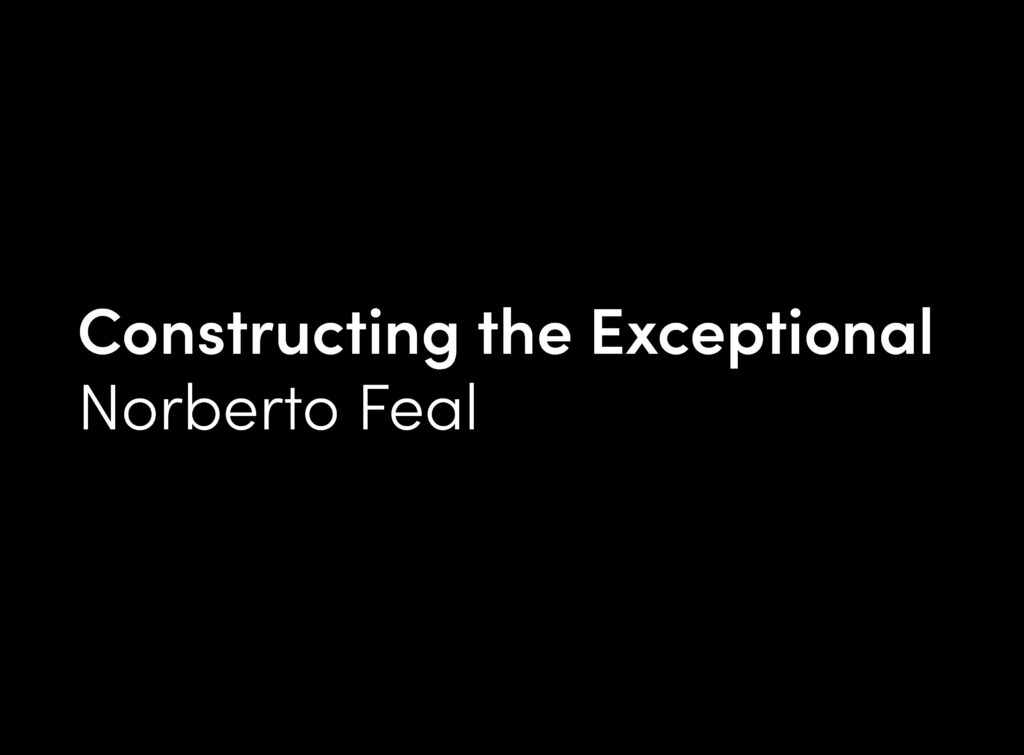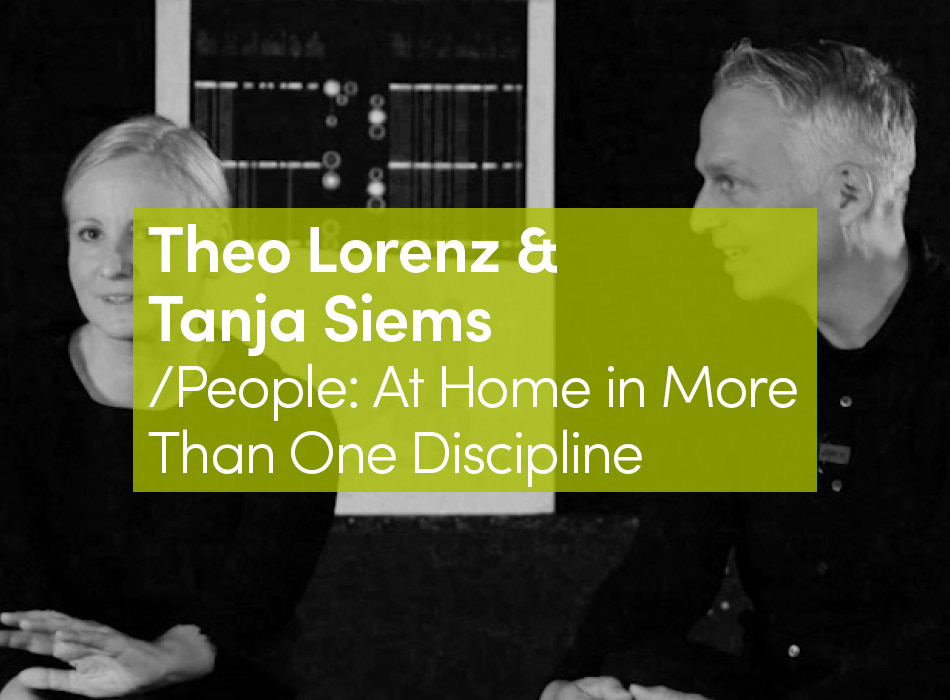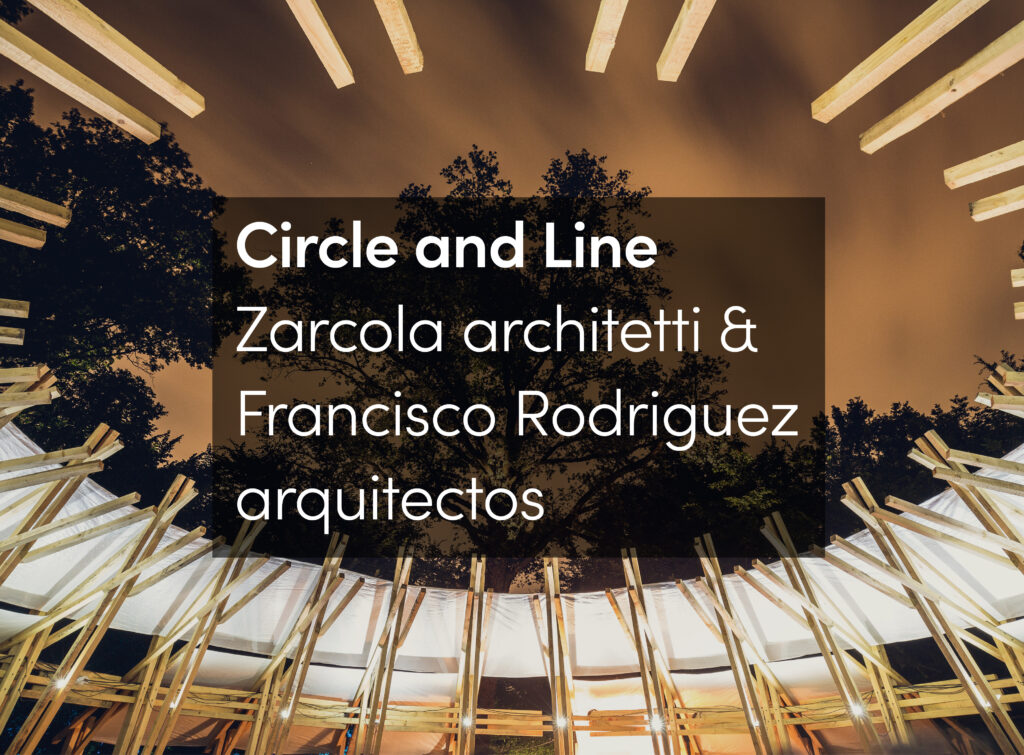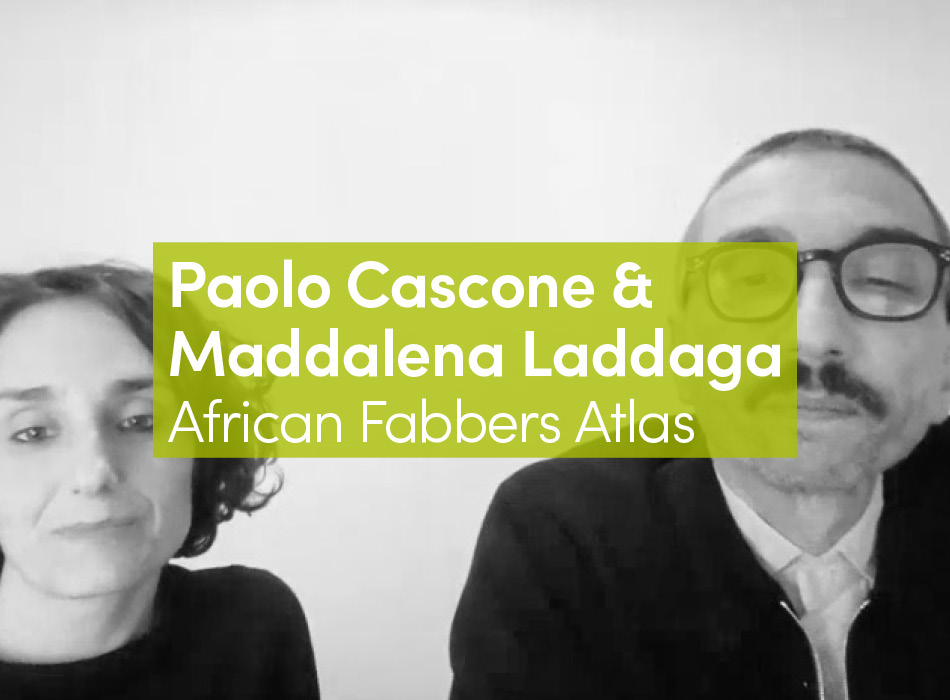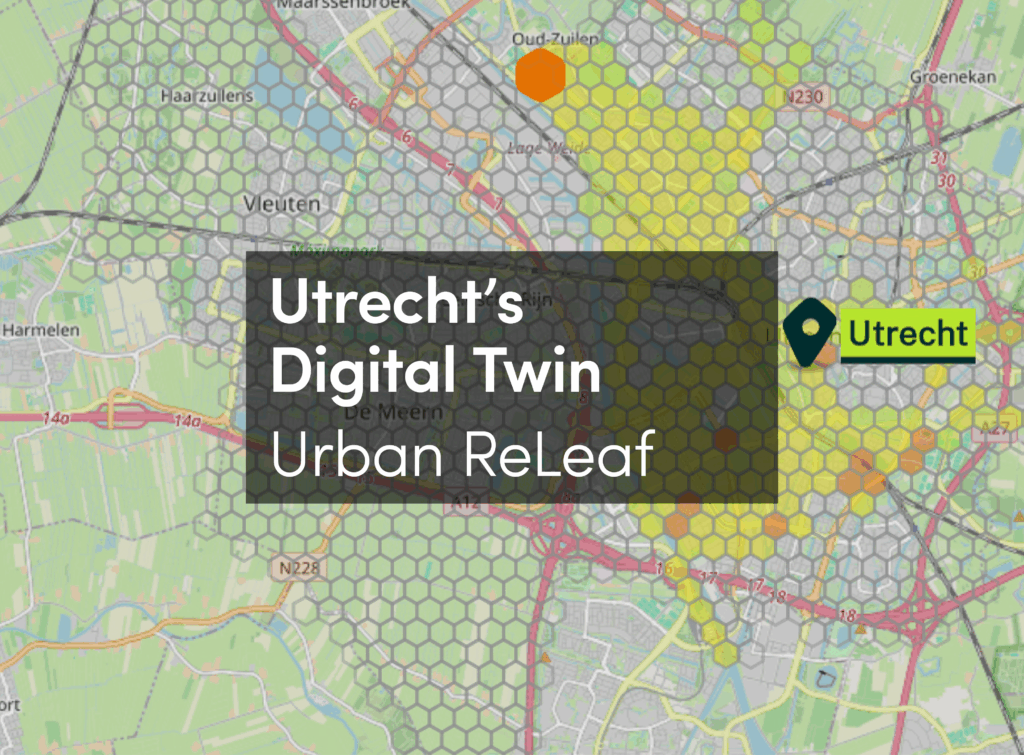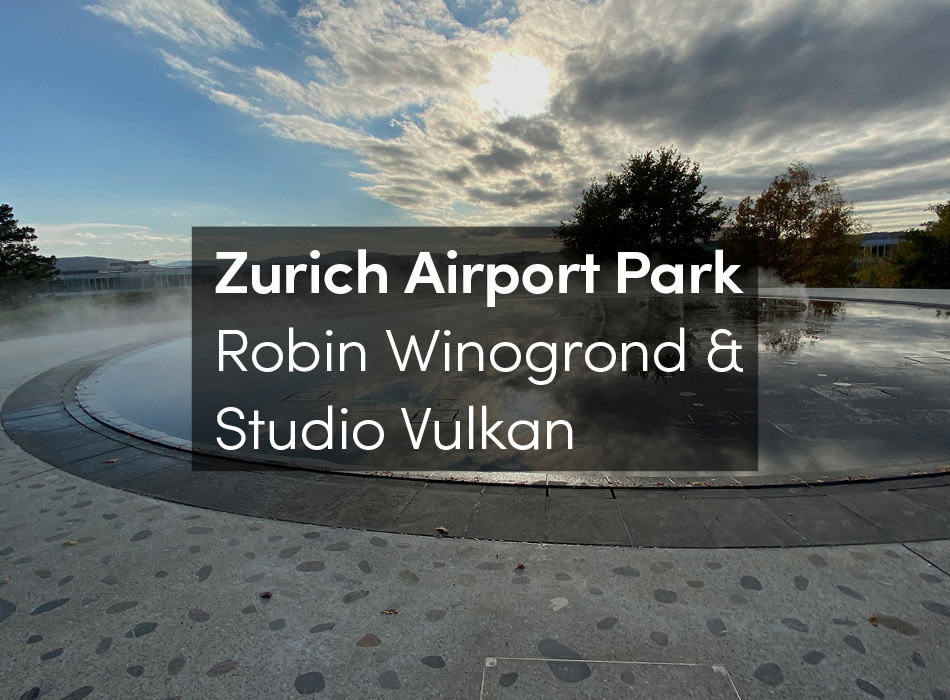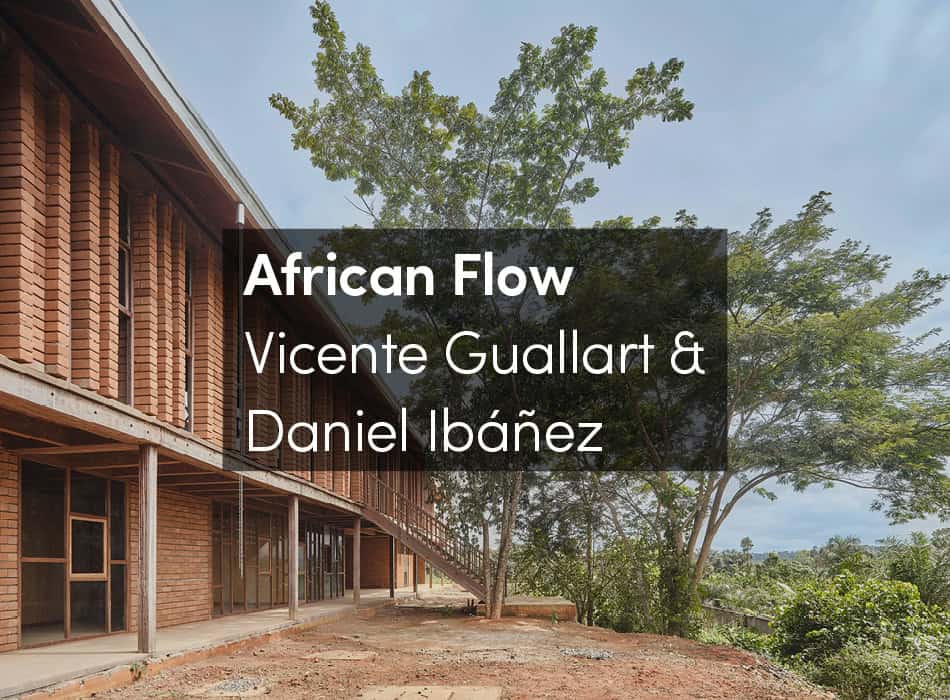Since 2016, the NGO Tagma has been building sustainable public schools around Latin America in collaboration with companies, renowned architecture firms, local governments and lots of people from all over the world. It all started in Uruguay when a group of friends dreamt about creating a sustainable learning space within the public education system to benefit a rural community. They worked hard to raise the funds needed, arranged meetings with government officials and finally contacted the architect Michael Reynolds, the creator of Earthship Biotecture. Altogether, more than 200 people from 30 different countries (volunteers, students, community members) built a 315-square-meter public school in just 45 days. The school now serves some 70 students, and it has a water accumulation capacity of 30,000 liters as well as the possibility to generate up to 4.86 kilowatts of clean solar energy per hour. To date, it has been visited by more than 40,000 people from Uruguay and overseas.
In 2018, the first opportunity to replicate the project came about, when Unilever, through its soap brand “Ala” and new sponsors Disney and DirecTV, made it possible to envision the second sustainable school in Latin America. This time around, the project began in Mar Chiquita, a beach town near Mar del Plata, in Buenos Aires province, Argentina. Between January and March, with 80 students, a crew of 20 builders and more than 100 volunteers, we built an almost identical replica of the first school in Jaureguiberry.
In 2019, in collaboration with DirecTV as a main sponsor, the program “Aulas para la Educación Ambiental” was created. The main goal was to create smaller spaces resembling multiple-use classrooms so that many schools, teachers and visitors could learn about the environment by visiting them and promoting community engagement activities. The environmental classroom consists of a 40-square-meter dome made from wooden triangles insulated with hay. This was the first project Tagma ventured into without Michael Reynolds, working alongside Cooperativa Caminantes, a permaculture and bioconstruction collective from Mar del Plata, Argentina.
In 2020, Tagma crossed the Andes and landed its third sustainable school project in Chile, in a town called Lo Zarate, just one hour away from the nation’s capital of Santiago. With a completely new working team and local organizations, the Rural School of Lo Zárate was renovated entirely in 60 days.
November 2020: Iporá, Tacuarembó, Uruguay
This was the first project built during the pandemic and our second classroom for environmental education. It is a 50-square-meter Earthship-inspired space built using tires, wood and glass. It has a rainwater collection system and solar panels to provide clean energy and lighting for the building. This classroom was built in collaboration with 50 volunteers in a timeframe of six weeks.
August 2021, Concordia, Entre Ríos, Argentina
The first project of 2021 was our third classroom for environmental education, in the city of Concordia, in Entre Ríos, Argentina. We built a 44-square-meter learning space in collaboration with the community of the Secondary Agroecology School (Escuela Secundaria de Formación en Agroecología – ESFA), created by the local NGO Luz del Ibirá. This school had a very special identity: in their curriculum, they focus on “wild edibles” – plant species that grow spontaneously, have a high nutritional value, and are accessible to everyone, yet few of us take advantage of them. The location where the classroom was built is close to the international bridge that connects Argentina and Uruguay, in the Salto Grande area, and has thousands of natural green spaces where students and teachers can walk on interpretive trails and learn about nature. The classroom has a renewable energy system, as well as a water harvest and treatment system that makes it self-sufficient. It was built according to bioclimatic architecture principles and incorporates natural construction techniques.
A77, a local architectural firm from Buenos Aires led the process of designing the building, attending to the community’s wishes and needs. The learning space also incorporates different “educational devices” such as a vegetable garden, a nature library, a telescope and an experimentation lab. The equipment is meant for meaningful and experiential learning, a key feature when embarking on environmental education. This building and educational project were possible thanks to DirecTV and to support from the Concordia Township and CODESAL, as well as local and national businesses and organizations.
December 2021: Fourth Sustainable Public School in San Jerónimo, Antioquia, Colombia
At the end of 2021, and this time with the support of DirecTV and Unilever, TAGMA built a 60-square-meter workshop classroom with 38 volunteers from Colombia and overseas. In this case, the educational devices and furniture can be configured in different ways to give different uses to the space. It is also outfitted with a 12-meter-square dome that serves as an agricultural laboratory to support the outdoor garden and orchard area.





